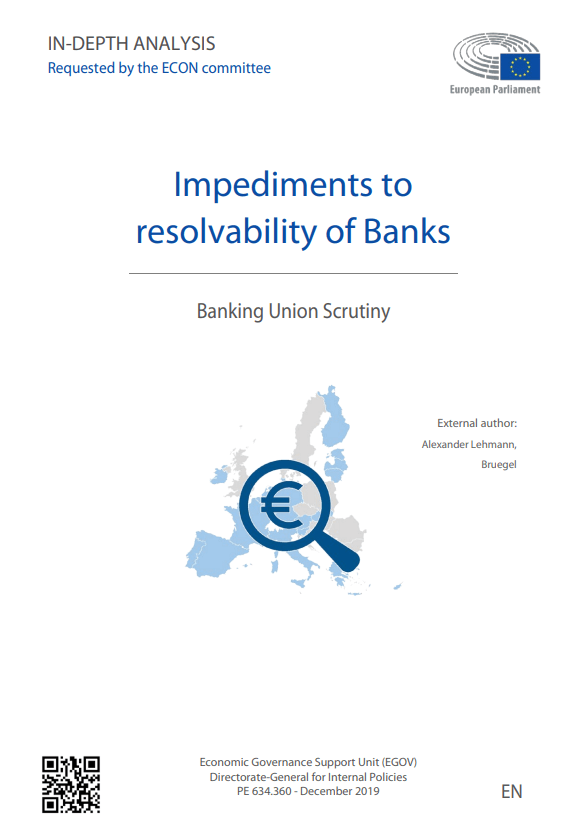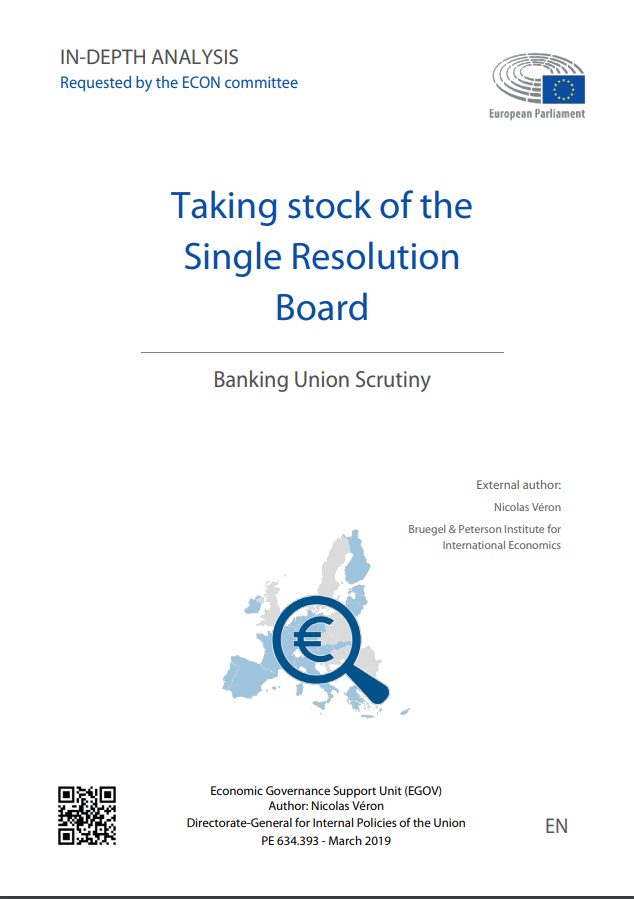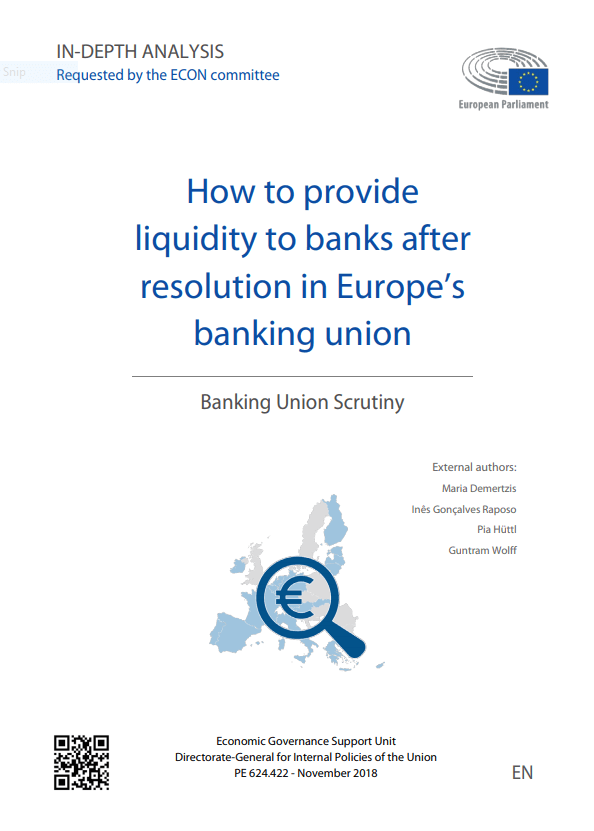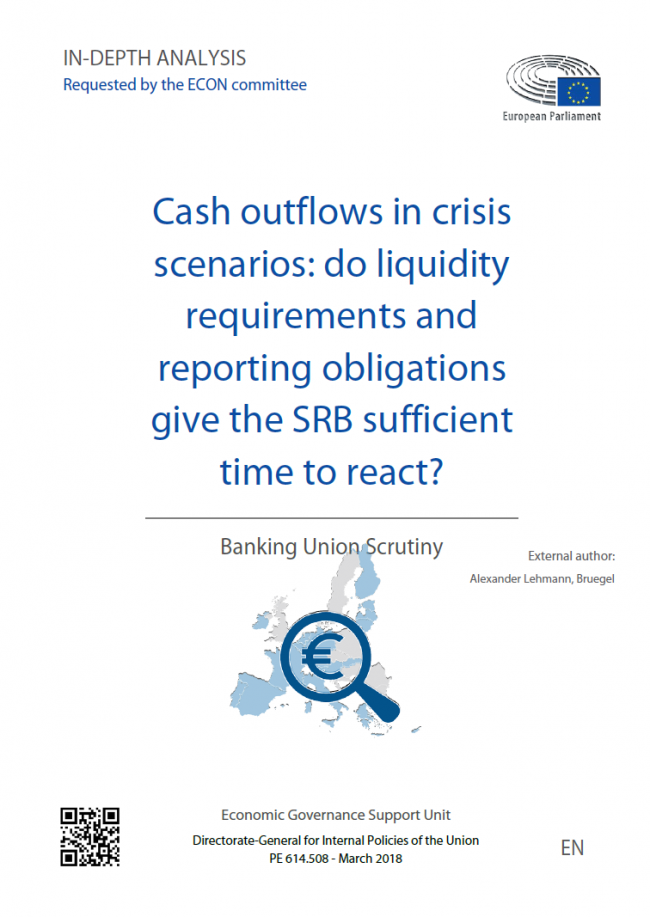Past Event

The state of the policy debate on the EU crisis management and deposit insurance framework
This members-only event welcomes Jan Reinder De Carpentier, Vice-Chair of the Single Resolution Board for a conversation with an invited audience.
Past Event

This members-only event welcomes Jan Reinder De Carpentier, Vice-Chair of the Single Resolution Board for a conversation with an invited audience.
Blog Post

The European Union has made significant progress to a more unified banking market but frictions remain between euro and non-euro countries. Without a coordinated approach to remaining issues in completing banking union, the gap could widen.
Past Event

At this event, Luis Garicano, member of the European Parliament, presented his two proposals to resurrect the European Banking Union: "a Safe Portfolio" and "a Single Resolution Board +".
External Publication


This paper gives an overview of the seven aspects of resolvability defined in 2019 by the Single Resolution Board, and then assesses progress in two key areas, based on evidence gathered from public disclosures made by the 20 largest euro-area banks. The largest banks have made good progress in raising bail-in capital. Changes to banks’ legal and operational structures that will facilitate resolution will take more time. Greater transparency would make it easier to achieve the policy objective of making banks resolvable.
Policy Contribution

Euro-area bank integration has decreased as post-financial crisis national rules require banks to hold more capital at home. It might be undermined further by bank resolution planning. Either a Single Resolution Board takes the lead for the entire banking group or independent local intervention schemes need to be developed for crisis resolution.
Blog Post

The discussions of the now-aborted merger of Germany’s two largest banks underlined supervisors’ concerns over creating banks that are too big or too complex to fail. While European banks are increasingly funded through securities that could be subject to a bail-in, transparency over how any resolutions would unfold is as yet very poor.
Blog Post

Europe’s largest banks have made progress in issuing bail-inable securities that shelter taxpayers from bank failures. But the now-finalised revision of the bank resolution directive and a new policy of the SRB will make requirements to issue such securities more onerous for other banks. In order to strengthen banking-system resilience, EU capital-market regulation should facilitate exposures of long-term institutional investors.
External Publication


The Single Resolution Board (SRB) has had a somewhat difficult start but has been able to learn and adapt, and has gained stature following its first bank resolution decisions in 2017-18. It must continue to build up its capabilities, even as the European Union’s banking union and its policy regime for unviable banks continue to develop.
Blog Post


The recent Eurogroup agreement on euro-area reform foresees a greater role for the European Stability Mechanism (ESM) as a backstop to the banking union. This is a welcome step forward but important issues remain. We assess the agreement on how to fund banks after resolution and the best way to organise the fiscal role in liquidity provisioning to banks. We argue that the bank resolution framework will remain incomplete and its gaps could result in important financial instabilities.
External Publication


Banks deemed to be failing or likely to fail in the banking union are either put into insolvency/liquidation or enter a resolution scheme to protect the public interest. After resolution but before full market confidence is restored, the liquidity needs of resolved banks might exceed what can be met through regular monetary policy operations or emergency liquidity assistance. All liquidity needs that emerge must be met for resolution to be a success. In the euro area, this can only be done credibly for systemically important banks by the central bank.
Blog Post

Latvia’s third largest bank ABLV sought emergency liquidity from the ECB and eventually voted to start a process of voluntary liquidation, after being accused by US authorities of large-scale money laundering and having failed to produce a survival plan. What does it mean for the ECB?
External Publication


Bank failures have multiple causes though they are typically precipitated by a rapidly unfolding funding crisis. The European Union’s new prudential liquidity requirements offer some safeguards against risky funding models, but will not prevent such scenarios. The speed of events seen in the 2017 resolution of a Spanish bank offers a number of lessons for the further strengthening of the resolution framework within the euro area, in particular in terms of inter-agency coordination, the use of payments moratoria and funding of the resolution process.